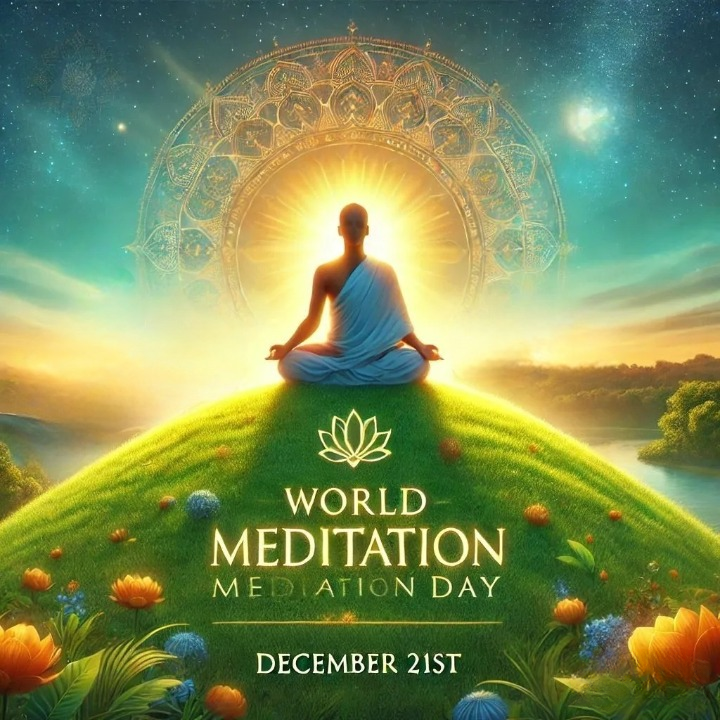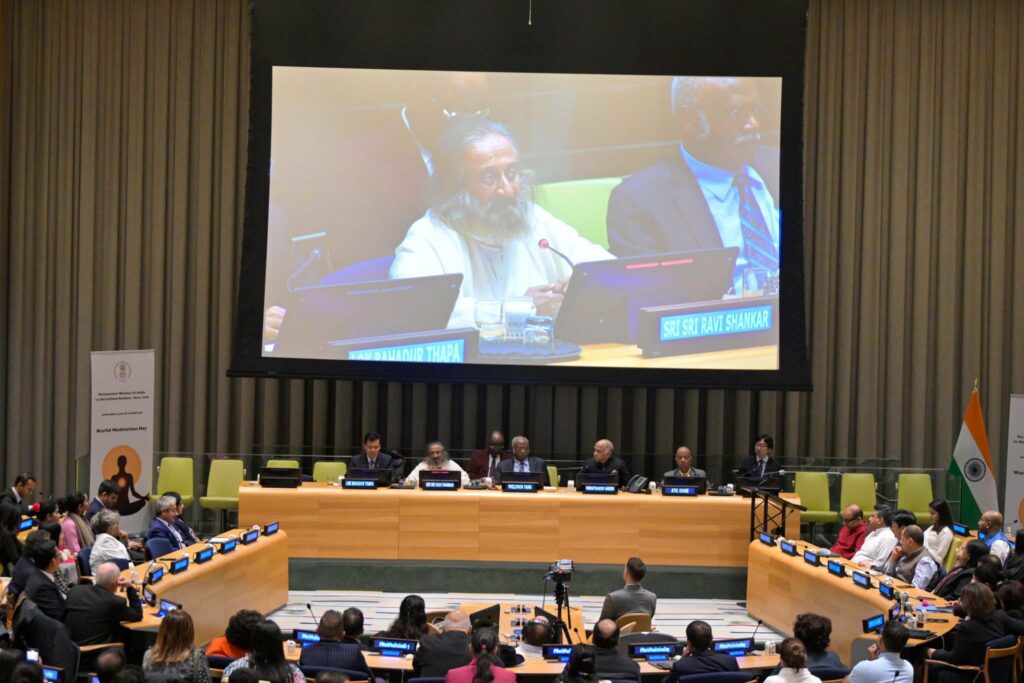
- The proclamation of December 21 as World Meditation Day by the UNGA reflects India’s growing leadership in promoting holistic practices rooted in its ancient traditions.
- Modern science has long validated the mental and emotional benefits of meditation, including reducing stress and improving focus.
- The World Meditation Day shows that India is not just a participant in global affairs but it is a thought leader guiding humanity toward collective well-being.
India’s influence on global culture took another significant stride with the United Nations General Assembly (UNGA) adopting a resolution to proclaim December 21 as World Meditation Day. Co-sponsored by India, alongside nations like Sri Lanka, Nepal, and Liechtenstein, this unanimous decision reflects India’s growing leadership in promoting holistic practices rooted in its ancient traditions. Nearly a decade ago, India spearheaded the initiative that led to June 21 being declared International Yoga Day, which has since blossomed into a global movement. With the declaration of World Meditation Day, India’s soft power narrative is gaining momentum on the international stage.
Sri Sri Ravishankar, the founder of the Art of Living, who spearheaded meditation practices worldwide, delivered the keynote address at the launch of the 1st World Meditation Day at the United Nations. The motion was facilitated by the Permanent Representative of India Parvathaneni Harish in the presence of UNGA President H.E. Philemon Yang, USG Atul Khare, senior UN officials, PRs, members of the diplomatic corps and other dignitaries.
The adoption of meditation as a global practice showcases the universal appeal of India’s civilizational values. Rooted in principles like mindfulness and Vasudhaiva Kutumbakam — the belief that the world is one family — India has successfully positioned its heritage as a solution to contemporary challenges. Ambassador Parvathaneni Harish, India’s Permanent Representative to the UN, pointed out the alignment between meditation’s focus on inner peace and the broader global aspirations for well-being and harmony. He emphasized that the timing of December 21, coinciding with the Winter Solstice, marks an auspicious period of renewal and introspection in Indian tradition, further deepening its symbolic importance.
Much like yoga, meditation transcends boundaries of religion, geography, and culture, making it a perfect soft-power tool for India. The first International Yoga Day in 2015 united millions across the globe, reinforcing India’s image as a leader in promoting well-being. Over the years, this initiative has gone beyond physical health, becoming a cultural export that speaks of balance, mindfulness, and community. With the formal recognition of World Meditation Day, India has built upon this foundation, offering meditation as a companion practice to yoga and a pathway to inner and societal transformation.

This achievement comes at a time when the world faces mounting stress, conflict, and anxiety. Modern science has long validated the mental and emotional benefits of meditation, including reducing stress and improving focus. By championing this ancient practice, India provides a universal tool for peace, resilience, and sustainability, directly aligning with the UN’s Sustainable Development Goals, particularly SDG 3, which focuses on ensuring healthy lives and well-being for all. Meditation’s holistic impact addresses modern crises and complements broader global aspirations for development.
India’s cultural diplomacy has evolved into a significant force on the global stage. From crafting International Yoga Day to now championing World Meditation Day, it is not merely sharing practices but narratives that promote inclusivity, peace, and universal welfare. This dual achievement positions India as a bridge between ancient wisdom and modern needs, projecting its heritage as a global good. As the world celebrates its first World Meditation Day on December 21, 2024, with events across continents, one message resonates clearly: India is not just a participant in global affairs; it is a thought leader guiding humanity toward collective well-being.
Through these efforts, India continues to fortify its soft power—turning its cultural roots into tools of diplomacy and its ancient wisdom into universal solutions. The world has taken note, and India’s quiet yet profound influence only grows stronger.
References:
- Business Standard. (2024, December 7). UNGA declares Dec 21 as World Meditation Day in resolution co-led by India. www.business-standard.com. https://www.business-standard.com/india-news/unga-declares-dec-21-as-world-meditation-day-in-resolution-co-led-by-india-124120700097_1.html
- Desk, T. L. (2024, December 8). UN declares World Meditation Day on December 21: Here is the significance of the day for Indians. The Times of India. https://timesofindia.indiatimes.com/life-style/health-fitness/health-news/un-declares-world-meditation-day-on-december-21-here-is-the-significance-of-the-day-for-indians/articleshow/116100228.cms
Shobhil Shrivastava is a postgraduate student specializing in Diplomacy, Law, and Business at O.P. Jindal Global University. His academic focus spans International Relations, Geopolitics, Defence, and Security. Views expressed are the author’s own.
